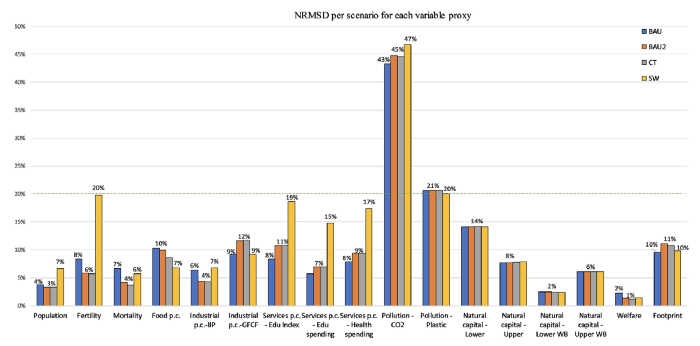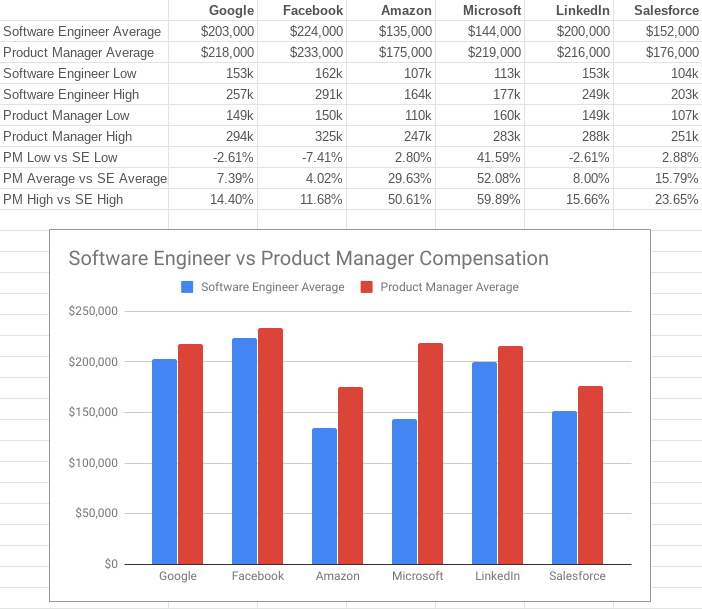
Will society collapse on the 21st century? A 1972…
Interesting (and short) meta-analysis on this 1972 MIT paper modeling major societal shifts and their implications.


Interesting (and short) meta-analysis on this 1972 MIT paper modeling major societal shifts and their implications.


Tim O’Reilly has a financial incentive to pooh-pooh the traditional VC model, wherein investors gamble on nascent startups in hopes of seeing many times their money back. Bryce Roberts, who is O’Reilly’s longtime investing partner at the early-stage venture firm O’Reilly AlphaTech Ventures (OATV), now actively steers the partnership away from these riskier investments and into companies around the country that are already generating revenue and don’t necessarily want to be blitzscaled.
https://techcrunch.com/2020/06/26/tim-oreilly-makes-a-persuasive-case-for-why-venture-capital-is-starting-to-do-more-harm-than-good/
Exactly. VC is broken and breaks entrepreneurs and solid businesses by putting them on an unsustainable growth push looking for outsize returns. Its all in the interest of the VC.

Excellent talk by my colleague, Sonia Marciano, on what product attributes we focus on. We tend to underinvest in things customers give high weight to and have high perceived variance. Translated to the product world, we’re not focusing on the attributes that solve the biggest and most acute needs. Watch for a more comprehensive explanation and examples.

I get asked about compensation for product managers given their experience quite often by my students and, obviously, by those working for me. Here’s the best advice I can provide based on many conversations on the topic (including my own situations past). Note that much of this is generic to any knowledge worker position so I’ve added a few specific product manager salary tips as well.
Let’s separate the discussion between asking for a raise vs. a promotion. They are linked but not the same thing and the manager will have different considerations and elements under their control based on your ask.
Its always important for you to understand why you want a raise and be honest with yourself as to whether its the right driver:
Asking for a raise not only takes gumption — so be convinced — but cannot be done often. Anyone who is constantly asking for more money likely will be labeled as one who’s just out for money (remember, its about the company mission, right?) or a complainer. Those are both career limiting.
First, asking for a raise has a few factors a manager will consider:
One thing most people misunderstand — and I know why because its probably the most common reason to deny someone a raise — is that budget is the biggest consideration. That’s rarely the case unless you’re asking for something enormous. Think about it this way: if you make $125k/year and ask for a 10% raise (which is a pretty big jump in any year) that’s just over $1k/mth for the company. Even most small businesses can easily absorb that.
Ah, the big question. Most established companies have bands of salary ranges for different levels and job types in the organization. Hopefully, most keep to that. Knowledge workers, especially in tech product development, should have wide bands. If your company is not tech heavy, it might not. You should talk with your HR rep to get more information on this first so you don’t go banging up against a wall you cannot surmount.
If you determine there is room, there are a few factors to consider:
Here’s a rough guide based on my sense of the current market. This is based on being in a tech center with cost of living notably above the mean (e.g. NYC, Boston; note that I’m excluding the fairy-tail land of SV unicorns and some of the big tech as that comp is wildly out of line with the rest of the market) (last updated Jan ’20):
Tenure at the company also can influence this and that is not factored in here. In addition, this does not account for bonus or equity as that’s too variable by company based on their comp philosophy. Use as a rough guide only as many other factors can influence this. Evidence shows that PMs now make more than engineers on average at big tech firms.

Before asking for a promotion, know why you feel like you deserve a promotion:
Let’s first understand the two general types of promotions (note that “battlefield promotions” aren’t considered here):
One other thing a responsibility promotion entails is ensuring that the organization has / can create the opening for you. This reasonably might be outside your manager’s control and have broader political implications they’re not willing to go to bat for you on.
Almost never and I would not go there. Even if you have another job offer in hand, why would you go back to your employer asking for a promotion or money after going through all the trouble of getting a new job? This isn’t a good strategy to get something from your current employer. They will see through this and might be happier knowing you’re somewhere else.
All-in-all, here’s the simple way I always look at people on my team at review time or when they ask for raises/promotions (and I know that most senior leaders look at it this way whether they admit it or not):
When managers make comp & promotion decisions they know they are delivering a message. They tend to fall into one of three categories:
This is why, when it comes to review and bonus season, managers — who inevitably have less to give out than they want — have to look at their staff this way. The #1s need to be over indexed on and the #3s need to be starved (so that hopefully they’ll quietly self-select out…and soon). The #2s end up bearing a bit of the brunt if the #1 group needs to pull from their pool. Whichever category you’re in significantly influences your ability to negotiate. First, try to get an honest understanding of that (for another post).
The other factor a manager considers is the potential affect of you not being happy / leaving on the rest of the team. Are you well liked and easy to work with? Do you pick up the slack and cover for others? Do you drive people nuts? Are you not carrying your weight? You not being there could actually improve morale. This is a challenging calculation that good managers have their finger on the pulse of.
The simplest advice I can give is that if you’ve been at your job for over 18 months and know you’ve been performing well — and well means above expectations…you don’t get promotions for showing up every day — you should start the conversation. The first response will likely be to put it on the radar and have it formally considered at the next review time or another milestone (unless you’ve already achieved #1 status above). Be patient but hold your manager to this commitment and ask for what you need to do to get this.
You need to read between the lines a bit and possibly ask some follow-up questions:
Again, I never advise threatening or asking over and over unless you get an a “non-answer” as outlined above. Getting an answer you aren’t happy with is not a non-answer. Just ask for what you need to do to be inline for something.
Don’t put your manager’s back to the wall. That will only strain your relationship. If you already have a strained relationship you don’t think you can repair, you should already be looking for another role/job.

This is a big deal (albeit would be tied up in court for awhile). Getting ahead of the already planned integration of messaging across Facebook, WhatsApp and Instagram so its not a nightmare later (and it would be).
The Federal Trade Commission is considering seeking a preliminary injunction against Facebook to prevent the social network from integrating several of its messaging services, according to three people with knowledge of the matter. The agency has discussed how the Silicon Valley company is stitching together the technical infrastructure underlying WhatsApp, Instagram and Facebook Messenger, said the people, who spoke on the condition of anonymity because the talks are confidential. The F.T.C. is weighing whether such an integration would make it harder to potentially break up Facebook, they said, especially if the agency determines that the company’s acquisitions of some of those apps reduced competition in social networking. The agency has not made a final decision about what to do, the people said.
https://www.nytimes.com/2019/12/12/technology/ftc-facebook-injunction.html